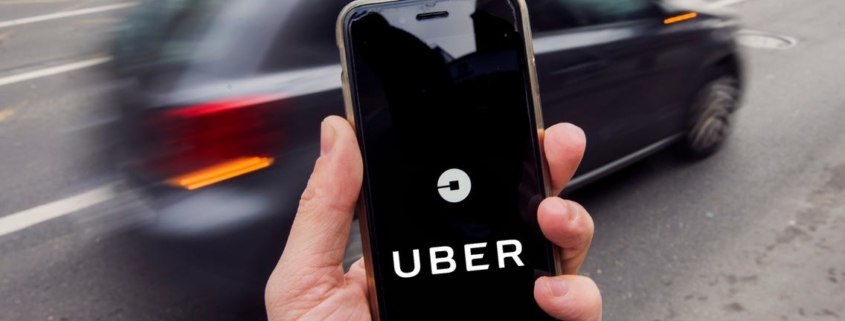Liability for Ridesharing Accidents: What you Need to Know
Ridesharing is an increasingly popular way for commuters in Birmingham and in other major cities to get to where they are going. Uber, Lyft, and other rideshare companies have made transportation much more convenient and cost-efficient, allowing users to access a ride through an app on their smartphone rather than having to call for a cab.
Although ridesharing offers a lot of benefits to users, it is not without its downsides. For one thing, rideshare drivers work on their own schedule, and they often put in very long shifts. Drivers can also be hired without ever interviewing or even talking with anyone from the rideshare company, and they are not always is well vetted as they should be. For these reasons, passengers assume some unique risks when they get a ride from an Uber or Lyft driver.
If you or someone close to you has been injured in a ridesharing car accident in Alabama, Burge & Burge is here to help. Call our office today at 205-251-9000 to set up a free consultation and case assessment with one of our attorneys. We will meet with you to review your case and advise you of your legal rights and options.
Common Causes of Ridesharing Accidents
A rideshare accident can happen for many of the same reasons that other types of auto accidents occur. But as we touched on earlier, there are some unique factors that could make accidents involving Uber or Lyft drivers more likely. Driver fatigue is one common reason that a rideshare driver might be more susceptible to getting into a crash, but there is also the motivation to maximize earnings.
Ridesharing drivers are paid for each trip, so they are incentivized to transport the passenger to his/her destination as soon as possible. This can cause them to take risks and shortcuts that they would not otherwise take.
In addition to drowsy/fatigued driving, some other common reasons for ridesharing crashes include:
- Speeding
- Aggressive/Reckless Driving
- Unsafe Lane Changes
- Risky or Illegal Passing Maneuvers
- Failure to Yield the Right-of-Way
- Distracted Driving
- Driving While Intoxicated
- Defective Vehicles/Vehicle Parts
Liability for Alabama Rideshare Accidents
Most auto accidents (including ridesharing accidents) are the fault of one or more of the drivers involved. There are some instances in which an outside party might be at fault, such as when an accident is caused by negligent maintenance or a faulty vehicle part. In some rare cases, a passenger could be to blame if they did something to interfere with the driver’s ability to operate the vehicle safely.
In cases in which the Uber or Lyft driver is at fault for the accident, things can become a bit complicated. Determining liability will depend on the status that the driver was in at the time of the crash. Ridesharing companies extend liability coverage to their drivers in some circumstances, and the level of coverage they provide is broken down into three “periods” or “statuses”:
- Rideshare App Turned Off: If the rideshare driver does not have their app turned on, then they are considered “off the clock”, and the ridesharing companies do not provide any coverage for accidents that occur when the driver is in this status. In a situation like this, an injured person would need to file a claim against the driver’s personal insurer, which is similar to what would happen with other types of vehicle accident.
- Rideshare App On without a Passenger: If the rideshare driver has their app turned on and they are either waiting for a fare or on their way to pick up a passenger, then Uber and Lyft provides a minimal level of coverage of $50,000 per person, $100,000 per accident, and $25,000 in property damage. If your losses extend beyond the liability coverage the ridesharing companies provide, it may be possible to go after the driver’s individual policy for the additional losses. Speak with your attorney to determine the options that are available in your specific case.
- Rideshare App On With a Passenger: If a rideshare driver causes a crash while their app is on and they have a passenger in the car, then Uber and Lyft both provide up to $1 million of total liability coverage.
It is important to note that the coverages listed above apply only to individuals who are injured by the negligence of a ridesharing driver. If an Uber or Lyft driver gets injured in a crash that is someone else’s fault, then they will need to pursue damages against the responsible party and in most cases, their insurer.
Injured in a Ridesharing Accident in Alabama? Contact Burge & Burge for Assistance
If you or a loved one got hurt in a ridesharing crash in Alabama, Burge & Burge is ready to go to work for you! To get started, message us online or call our office today at 205-251-9000.




Leave a Reply
Want to join the discussion?Feel free to contribute!